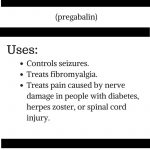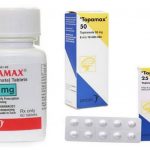
Contents
- 1 What Does Pregnancy Nausea Feel Like?
What Does Pregnancy Nausea Feel Like?
Nausea during pregnancy, known as morning sickness, can range from mild bloating and indigestion to frank vomiting.
Symptoms of pregnancy nausea and vomiting, also called morning sickness, can vary among women.
- About 70 to 80 percent of pregnant women experience morning sickness.
- Some only have nausea, while others also experience vomiting triggered by certain foods or smells.
Common morning sickness symptoms include:
- Abdominal heaviness
- Aversion to certain foods
- Increased salivation
- Feeling of motion sickness
- Indigestion
- Retching or vomiting
Does every woman experience nausea during pregnancy?
No, not every woman experiences nausea or vomiting during pregnancy. Although it is a common sign, many women do not have these symptoms.
Morning sickness usually starts in the first trimester, before the ninth week, and usually ends by the 14th week. In rare cases, it may continue throughout the entire pregnancy. Symptoms are generally more severe in women carrying twins.
When to contact your doctor
While nausea and vomiting are common and usually harmless during pregnancy, severe cases may require medical attention.
Excessive vomiting, known as hyperemesis gravidarum, can lead to dehydration and weight loss exceeding 5 percent of pre-pregnancy weight.
- Hyperemesis gravidarum affects about 3 percent of pregnancies and requires hospitalization.
- Contact your doctor if nausea and vomiting interfere with your daily routine.
You should immediately contact your doctor if you experience any of the following symptoms:
- Excessive vomiting
- Severe nausea that affects food intake
- Decreased urine frequency and amount
- Dark-colored urine
- Confusion
- Dizziness or fainting
- Difficulty with fluids
- Heart palpitations
- Weight loss
- Severe headache
- Muscle cramps or spasms
- Excessive fatigue
- Fruity odor in the mouth or sweat
- Fever
- Abdominal pain or tenderness
- Enlarged thyroid gland
- Yellowing of the skin or eyes
- Excessive itching
- If nausea or vomiting starts after the ninth week of pregnancy
QUESTION
Is it good to have nausea during pregnancy?
Yes, research suggests that nausea during pregnancy may be a positive sign.
Pregnancy nausea and vomiting are caused by hormonal changes necessary for a healthy pregnancy.
- Research shows that these symptoms can limit energy intake and lower certain hormones like insulin, directing nutrients to the baby instead of storing them in the mother’s body.
- Women who experience nausea and vomiting during the first trimester are less likely to miscarry, while those who don’t may have a higher risk of preterm delivery.
However, the absence of these symptoms doesn’t indicate any problems with the pregnancy as long as routine checkups show good health for both the mother and the baby.
Excessive nausea and vomiting can have negative effects, such as fetal growth restriction and an increased risk of low birth weight. It may also indicate molar pregnancy, multiple pregnancies, or Down’s syndrome.
What causes nausea during pregnancy?
The exact cause is unknown, but hormonal changes during pregnancy are generally responsible for nausea and vomiting.
- The hormone hCG (human chorionic gonadotropin), produced by the placenta, is often associated with pregnancy nausea and vomiting.
- The mother’s ovary hormones, estrogen and progesterone, also contribute by slowing gastric emptying.
- Other hormones, like thyroid hormone and leptin, may also play a role.
The immune system changes and psychological factors during pregnancy may contribute as well.
Nausea and vomiting can also be caused by underlying conditions such as peptic ulcer disease, liver or gallbladder disease, thyroid hormone imbalance, or vitamin B6 deficiency. Medical attention is recommended, especially in severe cases. Certain factors can increase the risk, including a family history of hyperemesis gravidarum, multiple pregnancies, female fetus, pre-existing conditions, and stress or obesity.
How is pregnancy nausea treated?
Mild cases can often be managed at home.
Severe cases may require hospitalization, intravenous fluids, medications, and feeding support.
14 ways to manage nausea and vomiting during pregnancy
- Take prescribed vitamins regularly. Consult your doctor if they worsen symptoms.
- Avoid foods that worsen symptoms, like spicy or greasy foods.
- Have small and frequent meals, avoiding long gaps between meals.
- Eat easily digestible carbohydrates like cereals, rice, fruits, and bread.
- Eat a light snack, like a cracker or fruit, in the morning.
- Have a protein-rich snack, like a boiled egg, before bedtime to regulate blood sugar.
- Limit tea and coffee if they worsen symptoms.
- Avoid excessive fluid intake with or after meals; sip if needed.
- Try peppermint or ginger tea, or chew ginger or mints.
- Avoid brushing teeth immediately after eating or vomiting to protect tooth enamel;
- Use over-the-counter B6 tablets as directed.
- Try a sea-sickness wristband, available at pharmacies.
- Avoid triggers that worsen symptoms.
- Your doctor may recommend specific medications to alleviate symptoms.
Subscribe to MedicineNet’s Pregnancy & Newborns Newsletter
By clicking "Submit," I agree to the MedicineNet Terms and Conditions and Privacy Policy. I also agree to receive emails from MedicineNet and understand that I may opt out of subscriptions at any time.


